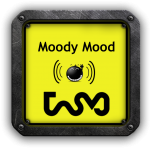 Sky Balloons
Sky Balloons Tipi Tapi Toee
Tipi Tapi Toee Parley Social Hub
Parley Social Hub Chicky Picky Saga
Chicky Picky Saga Beggar Escape
Beggar Escape Snack Reader
Snack Reader Whack Zombies
Whack Zombies Islamic world
Islamic world Bees Spot On
Bees Spot On Dollar Slider
Dollar Slider Sky Ballons Saga
Sky Ballons Saga King Prison Breaker
King Prison Breaker Ice Cream Sticks Artwork
Ice Cream Sticks Artwork Brain Matrix
Brain Matrix Budget Cash & Carry
Budget Cash & Carry Budget Economical
Budget Economical Couch To 5k Warzone
Couch To 5k Warzone Health Tips Weekly
Health Tips Weekly Weight loss Alerts
Weight loss Alerts Romance Alerts
Romance Alerts Dating Alerts
Dating Alerts Flirt Tips
Flirt Tips Gardening Tips
Gardening Tips Love Tips
Love Tips Science Journal
Science Journal Matchstick Artwork
Matchstick Artwork Fuzzle Puzzle
Fuzzle Puzzle Cube Blaster
Cube Blaster Dollar Grabber
Dollar Grabber Moody Mood
Moody Mood
In bringing a class-action lawsuit against Universal Music over digital music revenues, musicians trigger a big objection from apple products.
Aftermath Records, a division of Universal Music Group, is about to go to trial in a case that will determine what money is owed over digital music to producers of many hit Eminem records. Meanwhile, in another case — a class action against UMG brought by many musicians including Rob Zombie, the estate of Rick James, and others — the plaintiffs are demanding to see trial exhibits, expert reports, depositions and other documents from the Eminem case. The discovery request has brought a strong objection from Apple Inc., which is trying to shield these documents from coming out. Among the evidence being sought is a deposition of Steve Jobs, which when it was first produced, led to the extraordinary move by the judge of ordering most everyone out of the courtroom, including UMG’s employees.
The lawsuit from F.B.T. Productions, producers of many hit Eminem recordings, against Aftermath has been closely watched in the music industry since the 9th Circuit Court of Appeals determined that the plaintiff was correct in asserting that a contract between the parties should be read as treating digital music as “licenses” rather than “sales.” The two sides are about to go to trial to figure out exactly how much that is worth.
Because F.B.T. already has had much success and is at a more advanced stage — a trial on the threshold questions was held in 2010 — the plaintiffs in the class action want access to the documents produced in that case for their own litigation against UMG.
But Apple is resisting, filing an objection to a motion to modify a protective order.
On the eve of the F.B.T. case, almost all documents in the case have gone into lockdown. Ever since THRpublished a leaked audit that highlighted the millions of dollars at stake, the parties have become super-protective of evidence in the dispute, and the judge has been willing to accommodate the immense secrecy.
The musicians in the class action want to pierce the veil, but Apple contends that depositions given by Jobs and senior vp Eddy Cue, as well as other documents related to Apple’s business relationships with UMG and other record labels, are “highly confidential and proprietary trade secrets.”
In support, Apple points to the fact that when the depositions were taken, many individuals, including UMG employees, were sent out of the room. When Jobs’ deposition was played before the jury, the judge also closed the courtroom, ordered many people to leave and had the transcripts from the trial sessions filed under seal.
In the class-action suit, which recently survived another attempt by UMG to dismiss, the judge directed the parties to meet and confer and file a motion in the F.B.T. case to seek relief from a protective order.
Apple, however, says the plaintiffs haven’t shown how the requested documents are relevant. Instead, Apple faults the attorneys for the musicians bringing a motion for documents that is “broad but indiscriminate.” If the documents are released, the company says it will experience competitive harm.





